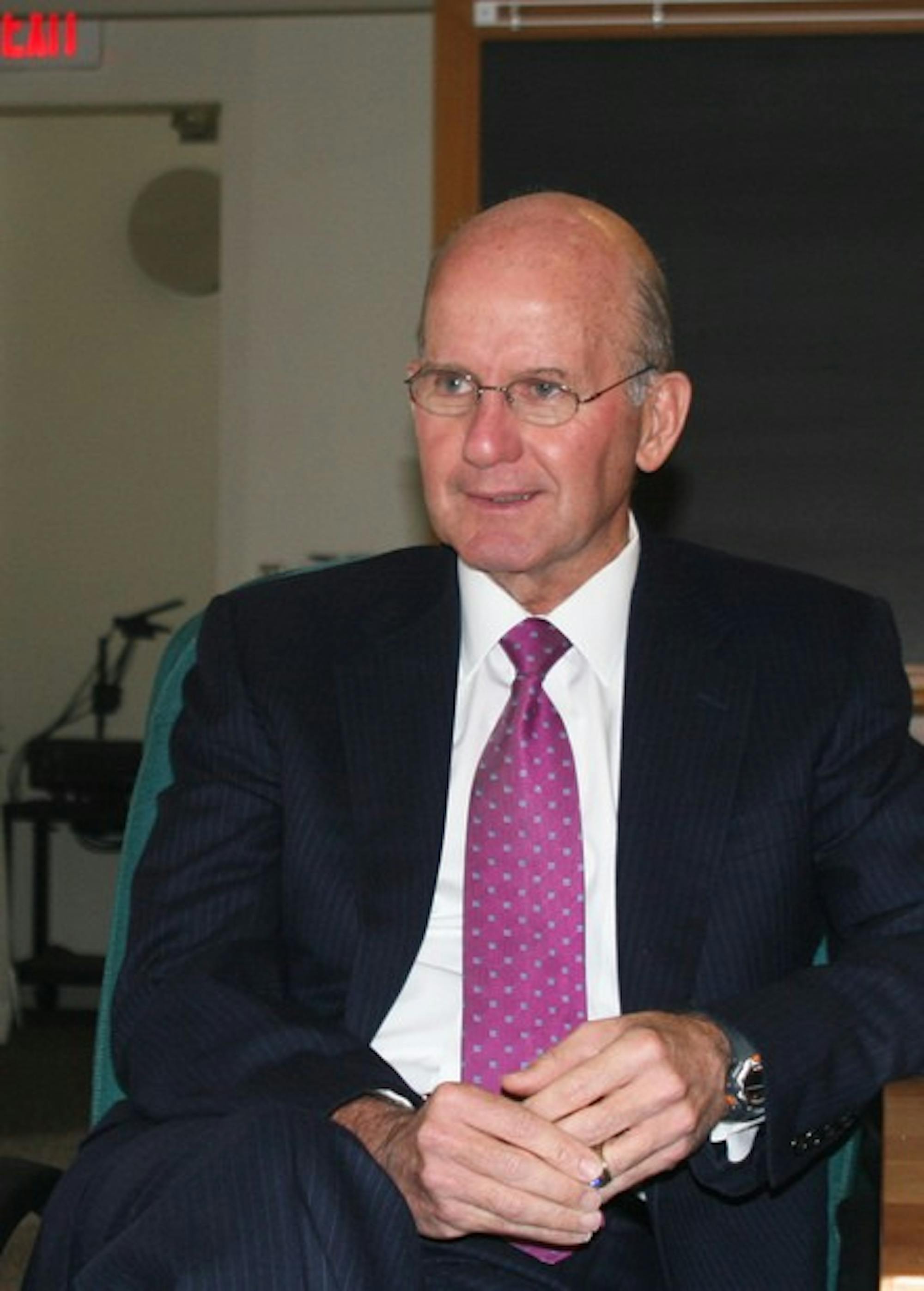"Rockefeller transformed SUNY from an underfunded stepchild to the largest comprehensive university system in the United States," Ryan said.
Rockefeller's collaborative abilities allowed him to gather support from advocates of private universities who were opposed to expanding the SUNY system, Ryan said.
"He knew he needed many allies to fulfill his dream of building a first-class education system," Ryan said.
Ryan enlisted similar practices to procure state funding for SUNY campuses, he said. Like Rockefeller, during his two years as chancellor of SUNY, he fought for state funding to flatline tuition costs, increase the accessibility of a SUNY education to lower-income families and improve the overall quality of education by hiring new faculty, he said.
"I was able to reach across party lines and, in a bipartisan way, make people understand the importance of higher education," Ryan said in an interview with The Dartmouth.
Ryan praised Rockefeller's judgment, especially his tendency to surround himself with effective people.
"He never forgot that his success depended on others," Ryan said.
Ryan said that his own work in the SUNY system rests on the foundation that Rockefeller created.
"It's important to leave a legacy in our lifetimes," Ryan said. "Rockefeller left behind a higher public education system and our obligation and mission is to build on it."
Ryan noted Rockefeller's tenacity after losing a Dartmouth student body election to "the son of a shoemaker." Rockefeller's determination and positivity despite this setback, though, put him in the running to win his next elected position nearly thirty years later -- the New York governorship, Ryan said.
"[Rockefeller] had a spirit of goodwill and passion for public service," Ryan said.
Ryan added that he similarly held on to his goals, sacrificing his personal comfort to benefit the SUNY system. Before becoming chancellor, Ryan was president of the University at Albany - SUNY and the New York Maritime College, maintaining both presidencies for 13 months while living in an Albany dorm room.
"They were going to put me in an executive suite, but it was going to be extremely expensive. So I asked them to show me an empty dorm room, and I said that would be fine," Ryan, who began his career as a naval pilot, said. "I've lived on aircraft carriers; it wasn't really hard."
Ryan also noted that Rockefeller's "learning agility" pushed him to success in unfamiliar or unexpected situations.
Ryan acquired a similar quality trying to land a military aircraft on an aircraft carrier in the middle of the ocean, he said.
Despite his extensive training, he could not have anticipated just how difficult the experience would prove to be. Only by quickly adapting to this new situation was Ryan able to successfully land the plane, he said.
Ryan is currently president and chief executive officer of The Center For Creative Leadership, an educational nonprofit institution that develops programs to teach leadership skills to students and businesses around the world.
Ryan's speech was part of the Nelson A. Rockefeller Centennial Series, marking one hundred years since Rockefeller's birth.




